by Patterson, Jennifer J | Oct 6, 2022
Re-imagining a Safe and Healthy Future for Agriculture at the 2022 Midwest Rural Agricultural Safety and Health (MRASH) Conference
Hybrid conference asks: what does the future hold regarding the health and safety of all farm workers?

Keynote speaker Matt Russell, a fifth-generation Iowa farmer and State Executive Director, USDA, Farm Service Agency
Contact: Gayle Olson, gayle-olson@uiowa.edu
Publish date: 10/06/2022
This year, MRASH focuses on the future as farmers emerge into a changing world affected by supply chain and worker shortages, and ongoing changes in the climate, the economy, and technology. The hybrid conference, featuring a keynote presentation by Matt Russell, State Executive Director of the USDA Farm Service Agency, will take place at the Hotel at Kirkwood Center in Cedar Rapids, November 16 -17. Participants can attend either in person or virtually. Farmers, students, frontline healthcare workers and vocational ag teachers qualify for a greatly discounted registration fee. A free pre-conference “train-the-trainer” workshop dedicated to respiratory fit testing will also take place on November 15 from 2:30-5:00 PM. Find more details and register for the event at the MRASH conference website.
Russell’s presentation will explore the changing trends affecting the future of agriculture. Ahna Kruzic, Association Director of the Regenerative Agriculture Foundation, located in Minneapolis, will lead the discussion panel focusing on the important health and safety implications of these trends.
Day Two of the conference features over 20 presenters describing their research and outreach projects on a wide variety of agricultural safety and health topics. The conference will close with an awards luncheon and capstone discussion session.
New conference features include tours of Kirkwood Community College’s agriculture, health and industrial tech programs; a walk-through of SIM-IA, a mobile clinical training unit; a “Taster Session” of flash talks, posters, demos, and more from students and experts highlighting important health and safety concepts, and a breakfast for those interested in pairing with a mentor throughout the conference.
MRASH is sponsored by I-CASH, CS-CASH and GPCAH. For MRASH updates: follow GPCAH on Facebook and Twitter (#MRASH2022) and join the MRASH Facebook group.
Callouts
MRASH Conference
In 1990, the Iowa State Legislature identified a need for a statewide center addressing concerns in agricultural safety and health. Iowa’s Center for Agricultural Safety and Health came out of that legislative session and continues to be one of the only mandated, state-funded centers for agricultural safety and health in the country.
Designated as a collaborative effort between four Iowa institutions: The University of Iowa, Iowa State University, the Iowa Department of Public Health and the Iowa Department of Agriculture and Land Stewardship, I-CASH works to improve the health and safety of the agricultural population by developing statewide prevention and educational initiatives.
Although there have been many structural and technological changes in Iowa’s agriculture, farm-related injuries and fatalities remain higher than those in other industries. https://icash.public-health.uiowa.edu/about-us/
Share with:
Public Health, Farmers, Farm Bureau, Extension, Ag-related media (written, news, and radio); State Rural Health Associations; Mental Health advocacy networks; community college networks
by Patterson, Jennifer J | Aug 26, 2022
FOR IMMEDIATE RELEASE
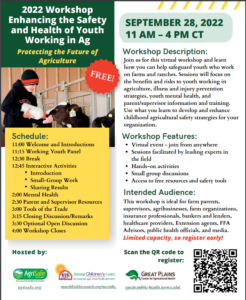
Click the flyer above to view the downloadable version.
August 26, 2022
CONTACT: Jenn Patterson
jennifer-j-patterson@uiowa.edu
319-335-4026
Free safety workshop to focus on youth working in agriculture
Protect the future of agriculture by attending a virtual safety and health workshop devoted to safeguarding youth who work on farms and ranches, 11 a.m. to 3:30 p.m. (CDT), Sept. 28.
The workshop is being hosted by AgriSafe Network, the Great Plains Center for Agricultural Health, and the National Children’s Center for Rural and Agricultural Health and Safety. The workshop is free but registration is required. Attendance will be limited to the first 50 registrants. Go to http://www.marshfieldresearch.org/cash-workshop.
Safety on farms and ranches is an ongoing challenge. “Young workers’ brains and bodies are not fully developed until age 25,” said Diane Rohlman, PhD, Outreach Director for the Great Plains Center for Agricultural Health at the University of Iowa. “They are eager to prove themselves – less likely to seek help and prone to taking risks. We’ve developed a free, online training for supervisors, parents, and teachers of this age group. The training covers how to best supervise, train, and communicate with these workers to keep them safe and healthy.”
Leading experts will utilize hands-on activities and small-group discussions in discussing benefits and risks to youth working in agriculture, illness and injury prevention strategies, youth mental health, and parent/supervisor information and training.
Participants can apply the new knowledge in designing safety strategies for their farms and organizations. The workshop is ideal for farm parents, supervisors, agribusiness, farm organizations, insurance professionals, bankers and lenders, healthcare providers, Extension, FFA advisors, public health officials and media.
Facilitators will include Knesha Rose-Davison, M.P.H. (AgriSafe); Marsha Salzwedel, Ed.D. (National Children’s Center); and Diane Rohlman, Ph.D. (Great Plains Center).
The Great Plains Center is one of 11 U.S. Agricultural Safety and Health Centers (www.cdc.gov/niosh/oep/agctrhom.html) that are funded by the National Institute for Occupational Safety and Health. Follow GPCAH on social media for tips and updates at twitter.com/gpcah and facebook.com/gpcah.
2022 Safety and Health for Youth Promo Flyer
by Patterson, Jennifer J | Jan 19, 2021
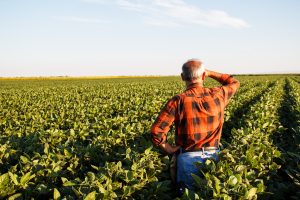
Image from Shutterstock.com
Press Release from GPCAH
Posted 1/19/2021
Contact information: Kanika Arora, PhD, Assistant Professor, Department of Health Management and Policy, College of Public Health, University of Iowa, kanika-arora@uiowa.edu.
This first-of-its-kind study in the U.S. asks: Are agricultural workers at greater risk than non-agricultural workers of developing dementia? The answer, according to University of Iowa researchers is: “Yes.”
University of Iowa researchers mined data from of the Health and Retirement Study (1998-2014), a longitudinal panel study that surveyed a representative sample of approximately 20,000 individuals over age 50 in the U.S. This new analysis explored whether rates of dementia and cognitive decline were different in older adults who had worked long-term in agriculture.
Investigators found that those who identified as having long-term occupations in the agriculture, fishing and forestry sectors had 46% greater odds of having dementia than those who did not. This finding was stronger among younger seniors, those who reported being fully retired, and those who had worked over 10 years at their longest-held job.
The results of this study – recently published in the peer-reviewed Journal Gerontology: Social Sciences (DOI: 10.1093/geronb/gbab005) – can help researchers develop effective interventions to protect older farmers.
“This study is both timely and relevant because farmers routinely work beyond standard retirement age, making them vulnerable to occupational injury. Additionally, a dementia diagnosis among farmers may be missed or delayed for a variety of reasons, causing even greater safety concerns,” said Kanika Arora, PhD, Assistant Professor in the University of Iowa College of Public Health.
While researchers could not attribute the association to hearing impairment or depression – factors independently associated with both agriculture and dementia – the effect of pesticide exposure among agricultural workers may warrant further study.
“This is consistent with previous studies showing adverse associations between neurotoxicant exposure and these specific measures of cognitive performance,” Arora said.
This study indicates that agricultural workers have lower resistance against the effects of dementia compared to people in professional or technical jobs. While the onset of the disease may be postponed due to higher resistance to damage to the brain among professional and technical workers, the rate of decline may be faster due to greater accumulation of brain pathology,” said Arora.
This study was supported by the Great Plains Center for Agricultural Health at the University of Iowa (funded by the US CDC, U54 OH 007548)). For more information about how farmers get hurt and how to prevent these injuries, visit gpcah.org and select “resources” from the menu options.
Contact information: Kanika Arora, PhD, Assistant Professor, Department of Health Management and Policy, College of Public Health, University of Iowa, kanika-arora@uiowa.edu.
by Patterson, Jennifer J | Apr 1, 2020
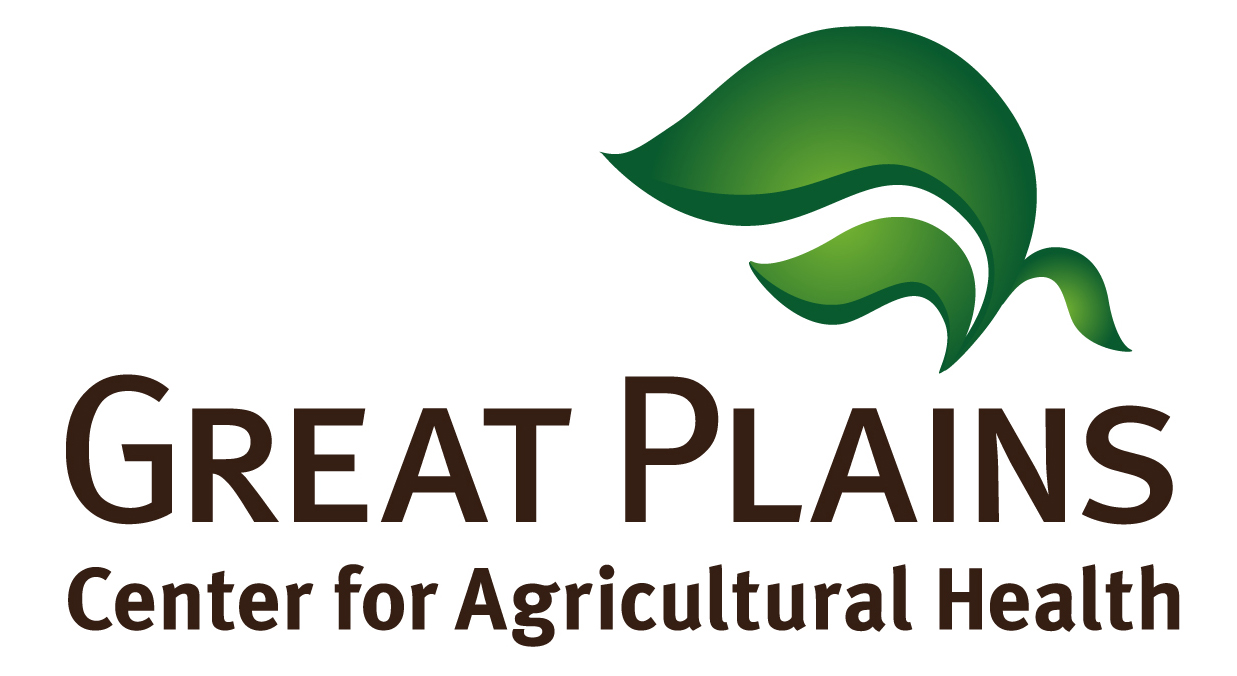
FOR IMMEDIATE RELEASE: April 1, 2020
CONTACT: Jenn Patterson, MLitt, GPCAH Communications Coordinator Jennifer-j-patterson@uiowa.edu, 319-335-4026
Improve the safety and health of upper Midwestern farmers and agricultural workers with a $30,000 pilot grant award
The Great Plains Center for Agricultural Health (GPCAH) is now accepting applications for new agricultural health and safety research, prevention, intervention, community outreach, and translation projects that will have lasting impacts on the safety and health of farmers and agricultural workers. Applicants may be community members, non-academic health and safety professionals, academic researchers, new investigators, or trainees.
“This year we are looking for topics related to mental health, chemical safety, machine safety, as well as the prevention of slips, trips, and falls,” said Nate Fethke, GPCAH Deputy Director. “Our pilot grant program is an incubator for agricultural safety and health innovation, and we look forward to seeing novel and practical research ideas.”
The pilot grant program anticipates funding four projects of 12 months duration. Applications are open to individuals or groups from Iowa, Illinois, Kansas, Minnesota, Missouri, North Dakota, Nebraska, South Dakota, Wisconsin, Indiana, Michigan, and Ohio. Others may apply, provided the topic is relevant to upper Midwest agricultural communities.
Past grant recipient Ashley Kates, a post-doctoral fellow at the University of Wisconsin, Madison, said, “My (2016) GPCAH pilot project helped get me to where I am today…I am part of a project looking at the dairy worker microbiomes and the prevention of antibiotic resistance.” She said that her pilot grant work was especially helpful for developing future collaborations.
Applications will be accepted until July 1, 2020, and will be reviewed for responsiveness and potential for agricultural safety and health impact. Awards will be available October 1, 2020.
Questions? Email Russ Foushee or call (319) 335-4405.
For more information visit http://bit.ly/2xGoAcu. Also, follow us on social media for tips and updates at twitter.com/gpcah and facebook.com/gpcah.
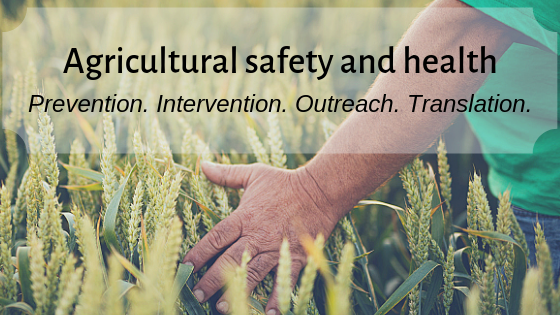
GPCAH Pilot Grants 2020: An incubator for agricultural safety and health innovation.
by Patterson, Jennifer J | Jan 30, 2020
University of Iowa College of Public Health
FOR IMMEDIATE RELEASE: Jan 30, 2020
CONTACT: Jenn Patterson, MLitt, GPCAH Communications Coordinator | Jennifer-j-patterson@uiowa.edu | 319-335-4026
Study reveals Midwest farmers’ top concerns and stressors
This multi-method study offers insight for researchers, stakeholders, and educators on prioritizing interventions and resources for Midwest farmers.
To better understand how to reduce injury and illnesses in Midwestern farmers, researchers at the University of Iowa College of Public Health have asked farmers to identify their own perspectives regarding hazards and stressors associated with their work. Responses from 540 farmers were analyzed to identify their concerns. The results have been recently published by the American Society of Agricultural and Biological Engineers in the Journal of Agricultural Safety and Health, available at https://doi.org/10.13031/jash.13660.
The study identified that Midwestern farmers’ top safety concerns focused on farm chemical safety, equipment and tools, and specific health conditions experienced by farmers. Nearly half of farmers surveyed made specific requests for information on safe chemical handling, storage and use, and for information relating the effect of farming chemicals have on health. Farmers also expressed their concerns regarding the safety of equipment and tools, with specific concerns on entanglement hazards and maintaining old equipment in safe operating condition. Over one-third of those surveyed had questions regarding health outcomes associated with farming exposures, including respiratory health, hearing loss, depression, pain, and acute illnesses.
To obtain insights into the stressors of farmer mental health, the survey also asked farmers to identify what is causing stress on the farm. Unsurprisingly, finances dominated the responses (45%), with market/commodity prices the most frequently identified stressor. However, farmers identified climate/weather (22%) and workload and labor concerns (16%). Additional farmers reported being stressed about family and personal issues, farm-specific activities, health and safety, regulations and politics, and aging. Discussions with farmers about multiple factors, particularly in times of economic uncertainty and weather extremes, may be recommended to diffuse anxiety in order to promote mental health among farmers.
Tools to help farmers improve knowledge or develop protective practices that target these topics may be welcome by farmers. The Great Plains Center for Agricultural Health, one of 11 national agricultural safety programs funded by the Center for Disease Control, has compiled information across many of these topics to begin helping farmers address their concerns and reduce stressors. For more information about how farmers get hurt and how to prevent these injuries, visit gpcah.org and select “resources” from the menu options.
This study was supported by the University of Iowa Great Plains Center for Agricultural Health.
Contact information: Kanika Arora, PhD, Assistant Professor, Department of Health Management and Policy, College of Public Health, University of Iowa, kanika-arora@uiowa.edu.
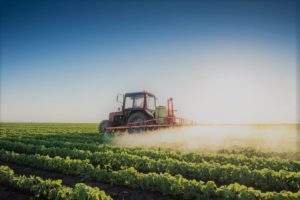
Photo source: Shutterstock.com






